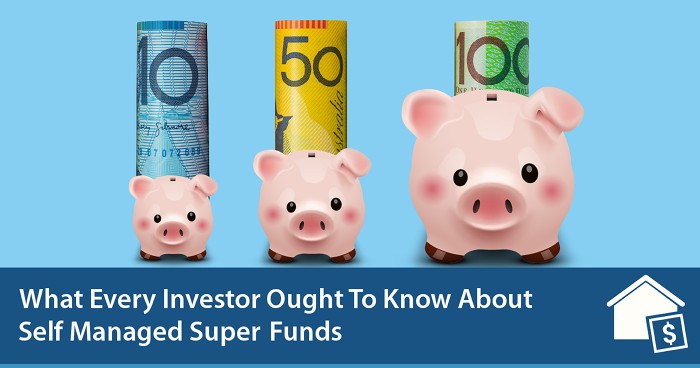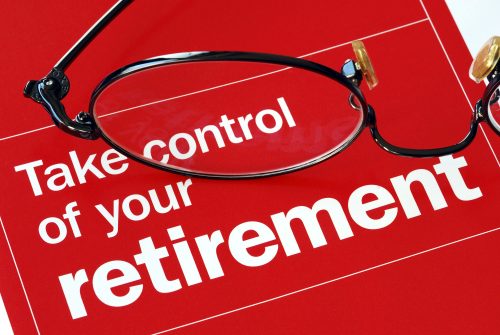What Every Investor Ought To Know About Self Managed Super-Funds

Are you losing up to 7%-11% potential interest on your superannuation fund?
If you have money tucked away for retirement – consider this post a wake up call. By the time you retire, you might miss out on over a million dollars that you could have added to your account (for some people it’s even more than that.)
But it’s not just the future you’re risking. You might be missing out right now on the easiest way the Australian government has ever allowed to finance property deals – without relying on banks, joint venture partners, or money partners.
Here’s what it’s all about.
Because of the way your pension fund is structured, …
I'm pulling back the curtain, revealing my best kept Deal Finding Secrets!
- My Secret Search Strategies: Unlock hidden cracker deals no one else knows about
- Stop wasting hours on research: Simple setup automatically hunts down hot deals for you!
- How to use Australia’s top research tool anytime to turning boring research into an exciting treasure hunt
- Bonus: Free Research Tool Credits Included!
🎯 Don’t miss this!
…there’s a good chance your lazy money isn’t working hard enough.
How can you tell? It’s easy. If you have accumulated $150,000 or more in your retirement fund and are only getting a pathetic 1%-2% average return – you should consider making some changes.
A lot of savvy Australians already have.
Just quietly… Without too much PR… Over one-third of Australia’s massive $2.2 trillion superannuation industry has shifted to Self Managed Super Funds (SMSF).
Why are the most affluent people in the country moving their long term savings to SMSFs? Because by doing so you can turn your average 1-2 per cent return into a…
… whopping 9-12 per cent return!
Make sure you seek out your own financial advice to suit your own personal circumstance… read on to discover some experts that can help you with this.
To explain exactly how this works… And why as a property investor you’re in a better position to profit from this than anyone… I’ve asked Jolene and Matt Sukkarieh, property investors and financial planning experts at My Financial Group, to join us today.
Jolene and Matt, can you start by explaining to us what exactly Self Managed Super Funds are, why the government created them, and who can benefit from having one?
What Are Self Managed Super Funds (SMSFs)?

A SMSF is a tax-advantaged way of saving for retirement that gives investors the flexibility to manage, directly invest and administer the fund.
Self Managed Super Funds are set up similarly to trust accounts; however, the members of the SMSF are also the trustees and the account is fully regulated by superannuation legislation.
That means that there are very specific rules that need to be followed in order to avoid severe penalties.
Why Are Self Managed Super Funds So Popular?

Although Self Managed Super Funds allow investors to save for retirement just like any other super fund, they also give investors control, transparency and flexibility with investment funds.
That’s because the fund members, who are also the trustees, can follow their own financial strategies by choosing to invest in shares, managed funds, property, high interest cash savings, gold or term deposits.
According to Jolene the reason most people invest in a SMSF is because they think that they might be able to do something better themselves with the money that is in superannuation. Or, they find that the tax environment is better.
However, with increased flexibility, Self Managed Super Funds come with increased responsibility and work.
There also is a higher level of risk, as you will be solely responsible for their performance and earnings. Fees associated with running a SMSF also may be higher than fees for other super funds.
How Can SMSFs Be Used In Property Investing?

They can provide funding that can be used instead of or in conjunction with traditional bank financing to acquire property. Other investing platforms don’t allow property purchases, so you need to set up a Self Managed Super Fund if you plan to use superannuation funds to finance a property deal.
However, SMSFs have very specific rules and the property you plan to buy must:
- Meet the ‘sole purpose test’ of solely providing retirement benefits to fund members
- Not be acquired from a related party of a member
- Not be lived in by a fund member or any fund members’ related parties
- Not be rented by a fund member or any fund members’ related parties.
Jolene recalls a client who was looking to acquire a fourth property and had difficulty obtaining traditional financing from the bank. The client was older, had a high income and put lots of money into a superannuation fund.
Because of the available cash flow and the client’s age, Jolene says it was appropriate to look at a SMSF as a way to acquire the property.
Additionally, Jolene noted that the client planned to buy and hold the property, which had potential to be developed down the road for a profit. The client also had the ability to put more money into the SMSF, if needed, to comply with regulations.
In another situation, Jolene counseled a client who wanted to purchase a business-run property using a SMSF. By doing this, he had the opportunity to pay rent into a super fund with a 15 percent tax environment.
Is A SMSF Right For MY Situation?

Matt and Jolene recommend that property investors who are considering using a SMSF to finance their next deal should consult with a qualified financial advisor to discuss their specific situation.
Matt and Jolene look at each situation on a case-by-case basis to determine whether it is best to use the SMSF as an investment vehicle or a tax environment.
Some factors he considers are:
- What type of property the client wants to purchase (commercial, rental or land);
- Whether super funds can be combined; and
- How much money is available to fund the purchase.
“It’s about understanding the client’s situation and helping them make decisions so we can achieve the desired outcome.” Jolene says.
Although there is no required minimum balance, Matt typically recommends that property investors have at least $150,000 available to create a SMSF due to setup costs and the ability to maintain the original value of the fund (called the basis) to ensure compliance with superannuation rules.
SMSFs, when managed properly, can be a great tool to help you finance property investment deals and achieve financial freedom in retirement.
However, because trustees are responsible for all aspects of managing a SMSF, it is important for them to have someone on their team to keep them apprised of changes and help them understand their options and avoid penalties.
Still have questions about Self Managed Super Funds? Need an experienced professional to analyse if they are useful to you? Reach out to My Financial Group or give Matt and Jolene a call.
Looking for proven ways to create profits in the current market?
You'll find over 200 step-by-step case project studies, our renown Master Classes and Property Crash Courses… and heaps more!
Try the Ultimate Property Hub now –– it's free!


0 thoughts on "What Every Investor Ought To Know About Self Managed Super-Funds"